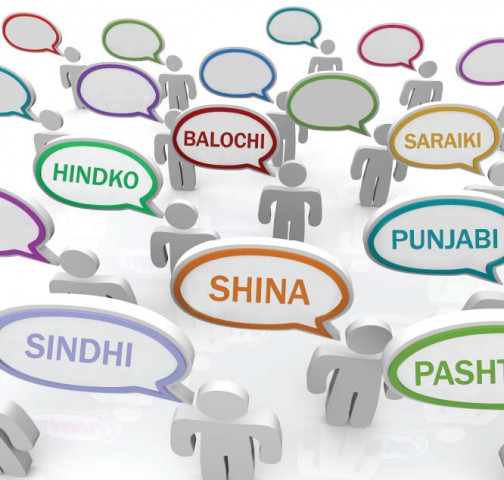Mother tongue: Shina group endorses language bill
SLCPS endorses a bill tabled in parliament to expand the number of national languages.

“Everybody should lobby and support the bill to see it through,” said Ishtiaq Yaad, general secretary of the SLCPS, urging Gilgit Baltistan legislators to actively play a role in the bill’s passage.
The private bill, moved in the National Assembly by Marvi Memon of the Pakistan Muslim League-Quaid (PML-Q), calls for the government to expand the number of languages it recognises as “national languages” from just Urdu to eight languages. The seven additional languages represent major languages spoken across the country: Balochi, Punjabi, Pushto, Shina, Balti, Sindhi and Seraiki.
Yaad spoke of the need to recognise the native languages of most Pakistanis, especially on International Mother Tongue Day, which was observed world-wide on February 21 (Monday) as a United Nations-recognised celebration of linguistic and cultural diversity and multilingualism.
The date represents the day in 1952 when university students demonstrating for recognition of their language, Bangla, as one of the two national languages of the then Pakistan, were shot and killed by police in Dhaka, the capital of what is now Bangladesh.
“There is a growing recognition across the world that mother tongue is the best tool to impart education and learning,” said Yaad, an interview with The Express Tribune. “In this context we urge the government to take measures to ensure that the languages bill is passed in parliament.”
Yaad suggested that given the linguistic diversity of Pakistan, the language of instruction at primary schools should be determined not by the district the children live in, but rather their native language. Many districts, he pointed out, have native speakers of several distinct languages and dialects.
“The option to be educated in their own mother tongue should be given to children in all the bilingual and multilingual districts of Khyber Pakhtunkhwa and Gilgit Baltistan,” he said.
SLCPS is an organisation dedicated to preserving the Shina language and its associated culture. It has so far published more than a dozen books in Shina, a widely spoken language in Gilgit-Baltistan.
Shakil Ahmed Shakil, a renowned Shina linguist, said that promotion and protection of regional or local languages in the different provinces and regions of Pakistan represents an important contribution to the building of a Pakistan based on the principles of democracy and cultural diversity within the framework of national sovereignty and territorial integrity.
Published in The Express Tribune, February 22nd, 2011.



















COMMENTS
Comments are moderated and generally will be posted if they are on-topic and not abusive.
For more information, please see our Comments FAQ